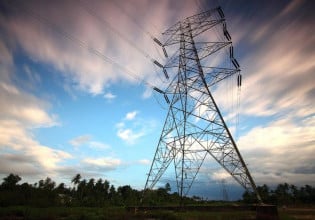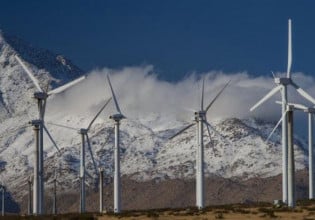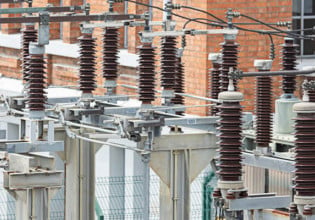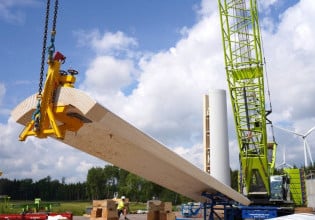The Linux Foundation Launches LF Energy, New Open Source Coalition
Just as open source software has transformed automobiles, telecommunications, financial services, and healthcare, The Linux Foundation today announces the formation of LF Energy with support from RTE, Europe's biggest transmission power systems provider, and other organizations, to speed technological innovation and transform the energy mix across the world.
LF Energy also welcomes four new projects to be hosted at The Linux Foundation as part of the initiative, which will advance everything from smart assistants for system operators to smart grid controls software.
LF Energy is an umbrella organization that will support and sustain multi-vendor collaboration and open source progress in the energy and electricity sectors to accelerate information and communication technologies (ICT) critical to balanced energy use and economic value.
"Our complex, multifaceted global energy market is evolving quickly, and it demands that we not only keep pace, but act more rapidly than ever before," said Shuli Goodman, LF Energy Executive Director. "A collaborative open source approach to development of these technologies across companies, countries, and end users, will provide the innovation needed to meet our respective goals in renewable energy, power electronics, electric mobility, and rapid digitalization for the energy sector overall."
LF Energy members aim to inform and expedite the energy transition, including the move to electric mobility and connected sensors and devices—all while modernizing and protecting the grid.
"We are thrilled to launch LF Energy and honored to work with RTE, European Network of Transmission System Operators, Vanderbilt University and The Electric Power Research Institute to harness open source technologies and advance the energy transition. We invite developers and organizations around the world to join us in advancing this exciting new endeavor," said Jim Zemlin, Executive Director of The Linux Foundation.
"With the technical and operational guidance of the Linux Foundation, LF Energy will create a sustainable ecosystem to quickly and efficiently deliver robust, secure and innovative solutions.
"Our goal with LF Energy is to deliver value as quickly as possible to help our stakeholders advance their business goals, strengthen local and global economies, and improve renewable energy and grid modernization,” Zemlin added.
LF Energy will focus on curating reusable components, open APIs and interfaces through project communities that the energy ecosystem can adopt into platforms and solutions.
Building the plumbing upon a common infrastructure enables energy companies and solution providers to differentiate at higher value layers and services, while reducing cost and integration complexity at non-differentiating layers.
As a result, power system providers will be empowered to achieve time to market, scale and efficiency much faster than ever before.
Key Facts, Background and Supporting Partners
RTE is a French transmission system operator and Europe's biggest transmission system provider.
"RTE is thrilled to be a founding member of LF Energy because we believe it is essential for creating forward-thinking grid solutions," said Olivier Grabette, Executive Vice President and Member of the Executive board.
"Shared open development is fundamental to enabling smart power for the benefit the global economy and the energy landscape of the future. RTE is proud to contribute three significant projects to the LF Energy ecosystem, and we look forward to working closely with The Linux Foundation and the open source community to make our systems smarter and more secure," Grabette concluded.
Vanderbilt University is a private research university in Nashville that conducts research in the area of cyber-physical systems through its Institute for Software-Integrated Systems.
"Vanderbilt's Institute for Software-Integrated Systems has a long track record in building various open source software tools and this is an exciting cross-sector collaboration," said Gabor Karsai, Associate Director of the Institute. "This initiative will allow us to share our research results with the open source community and facilitate technology transition to industry."
ENTSO-E, the European Network of Transmission System Operators, represents 43 electricity transmission system operators (TSOs) from 36 countries across Europe.
"ENTSO-E sees the potential for community and collaborative action that the LF Energy initiative offers to pool skills and knowledge in new strategic digital areas," said Laurent Schmitt, Secretary General, ENTSO-E. "ENTSO-E recognizes the benefits of open source and shared development to develop agility in future digital developments, which is key for ENTSO-E and our TSO community. We have established a first liaison with LF Energy as a strategic option for meeting ENTSO-E's and the European TSOs' commitment to a cost effective and secure energy transition. We are pleased to be part of this global announcement."
The Electric Power Research Institute (EPRI) conducts research, development, and demonstration projects for the benefit of the public in the United States and internationally. Its membership has grown to represent approximately 90% of the electric utility revenue generated in the United States and extends to participation in more than 35 countries.
"The Electric Power Research Institute believes a collaborative, innovative, and objective approach is necessary to tackle many of the opportunities ahead for maintaining a safe, reliable, affordable, environmentally responsible, and integrated electric power system," said EPRI Vice President of Integrated Grid Mark McGranaghan. "This effort will continue to foster that spirit of collaboration, bringing multi-national perspectives to the table to inform globally-impactful work toward our respective and complimentary missions."
RTE contributed three projects to The Linux Foundation to form LF Energy, and Vanderbilt University will transition its Resilient Information Architecture Platform for Smart Grid (RIAPS) applications technology. These projects will help seed an open source ecosystem for TSOs, distribution system operators, aggregators, utilities, vendors, and other energy sector stakeholders.
More about new LF Energy projects:
- OperatorFabric: is a smart assistant for system operators for use in electricity, water, and other utility operations. The industrial strength, extensible and flexible grid operations platform provides strategic management of information with a modular approach to applications, easy-to-add new functionality, and open APIs.
- Let's Coordinate: an extensible solution of OperatorFabric, enables organizational power system coordination, visibility, communication, and workflow between distributed users across national and regional boundaries.
- The PowSyBl Framework: of reusable modular components is a high-performance computing platform that enables grid modeling (e.g., CGMES) and simulation in a highly distributed energy resource environment from system expansion studies to planning and operation.
- RIAPS: The Resilient Information Architecture Platform for Smart Grid (RIAPS) provides core services for building effective, secure and powerful distributed applications. Created at the Institute for Software-Integrated Systems at Vanderbilt University, with support from North Carolina State University, Washington State University, and funding from the U.S. Department of Energy's Advanced Research Projects Agency for Energy (ARPA-E), RIAPS enables smart grid control software to run reliably, just as smartphone apps run on platforms like Android and Apple iOS that have become industry standards.
Hardware, software, UI, services, and applications suppliers will work together on these independent technical projects as part of LF Energy to accelerate the energy transition.








